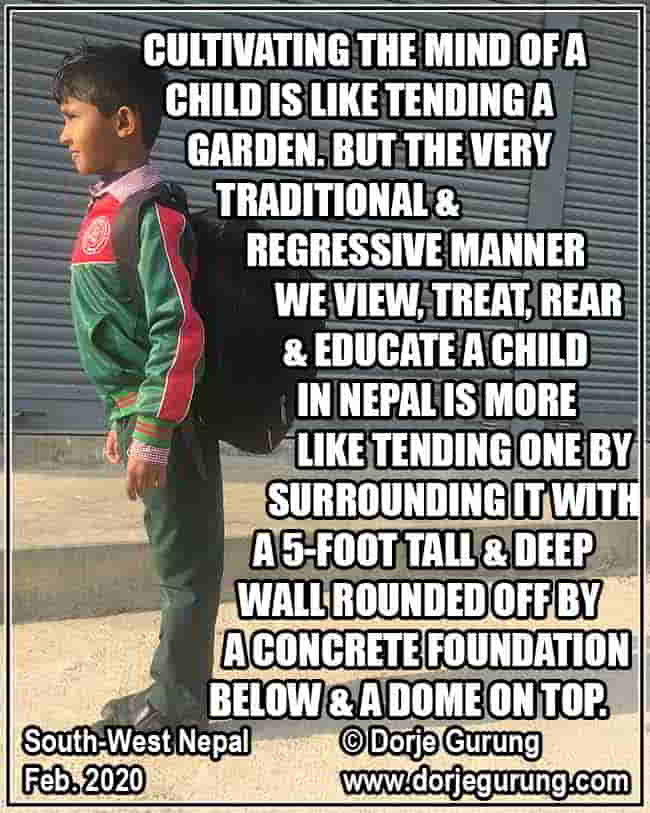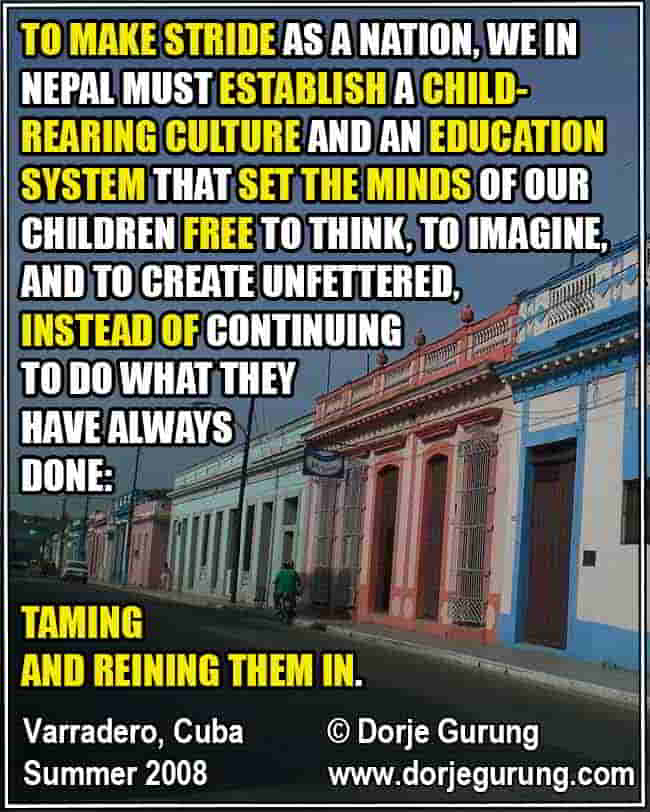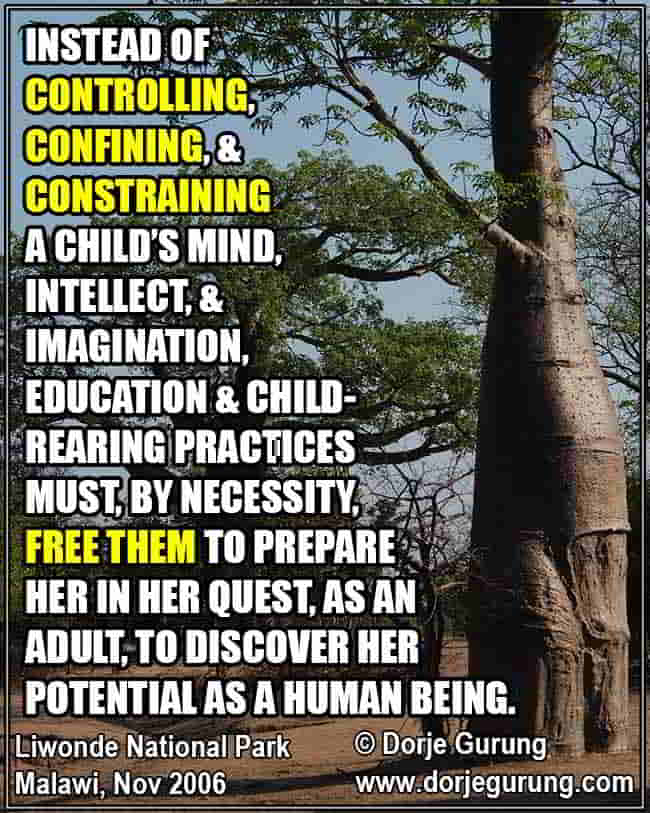Formal and informal education is — among many other things — about cultivating the mind of a child, which is analogous to cultivating a garden.
A garden needs some absolutely essential ingredients for it to grow and thrive. They are sunlight and carbon dioxide from the air, nutrients and water from the soil below — but in abundance. Space, both above and below, is another.
Above ground, there needs to be ample space for the plants in the garden to do a few different thing. One is to transpire water into the atmosphere and another is to release oxygen. Plants also move towards the light if needed. Additionally, it needs space to be moved and swayed by the breezes etc.
A garden also needs to be accessible to the four B’s — bees, bugs, butterflies and birds. They feed on the flowers the plants produce and in the process make them continue to produce more. They are also needed to pollinate and/or carry seeds elsewhere to regenerate the plants etc. There can’t really be any barriers to the rains that pour down on it either.
Underground, in addition to plenty of space down to the depths, a garden needs earthworms, other soil-bound bugs, and more subterranean creatures to turn and churn the soil — to aerate it — and to also fertilize it with their excrements etc.
When an environment is created where the garden is able to access all that it needs, at all times it needs them, it will NATURALLY access them as and when needed. Plants in the garden will grow towards light, for example. Underground, their roots will burrow towards nutrients and water etc. Plants themselves will compete with one another for resources and/or live symbiotically with others etc. In other words, the gardener does not have to do EVERYTHING!
Completely exposed to the elements, some times, a garden will also be shaken up by the wind or drenched — or even partly destroyed or “maimed” — by deluges etc., all of which are also necessary part of life and growth.
Of course, if instead you are cultivating a specialty garden, its needs will be a little different and specific etc., but that, really, is a given…at least to me anyway!
BUT the very traditional and regressive manner we view, treat, rear, and educate a child in our highly stratified, Brahmanical, patriarchal, closed, and inward-looking society of Nepal is far from what would pass for “cultivating the mind.”
What we do instead is tightly control and, in the process — I dare say — destroy the garden of a child’s mind.
We control, constrict, and constrain the garden of a child’s mind by surrounding it with a 5-foot tall and deep wall, rounding it off by a concrete foundation below and a dome on top, making it impossible for the mind to even just “move,” forget grow and thrive.

Why do we do that? Our mistaken, non-scientific traditional view and understanding — and therefore treatment — of a child as a miniature adult. Of course, they are NOT miniature adults (about which could be a whole long blog post on its own). Is it any wonder then that control and “discipline” therefore are the salient features of both child-rearing and education cultures?!
We cage a child’s mind. We force-feed or browbeat into the child a rudimentary education — mostly involving memorization and regurgitation.
What needs to happen instead? See below.
There’s another reason WHY we control, confine, and constrain the mind of a child. And that is that our society seeks mostly docile and compliant minds. Our closed and inward-looking society prizes and demands conformity, not questioning minds, not minds that challenge the status quo. Our society does not value sufficiently free-wheeling, independent and critical thinking minds. Naturally, out society has and provides — begrudgingly at that — limited space and/or place for such individuals.
Consequently, we fail our children, generation after generation. That we failed a VAST majority of our children in the past has been amply and very dramatically demonstrated — again — by everything that has transpired during the past year of the coronavirus pandemic.
Once again, if indeed we are interested in cultivating a child’s mind, we’ll need to — by necessity — free the mind of a child whether at home, in school, or on the playgrounds, just the way we “free” a garden we cultivate!
We must teach and learn to value — considerably more — thinking, imagining, and creating. We must…certainly MUCH more than teaching and learning to value conformity and being a sheep that follows blindly dictates and/or expectations, whether of tradition, culture, society, family, or incompetent old Khas-arya MEN leaders who are interested pretty exclusively in money and power.
What do you think?
References
Added after publication of the blog post.
Samayabhayo (About Time) (April 24, 2021). Educational Institutions and Body Policing in Nepal. This is a two-hour-long video of webinar on the subject. Many of the personal testimonials and information are highly insightful, many also shocking and appalling. [Added on April 28, 2021.]


